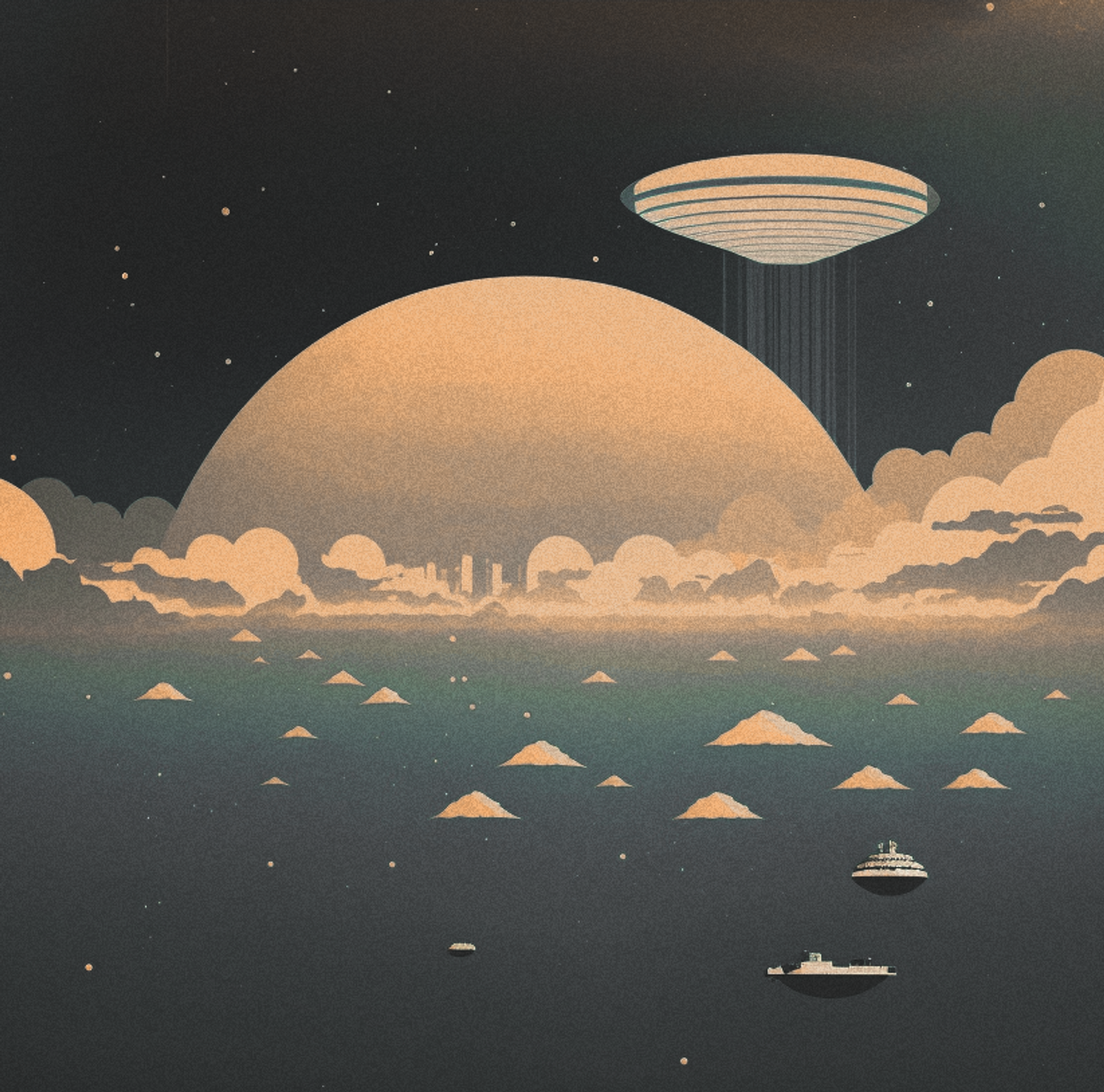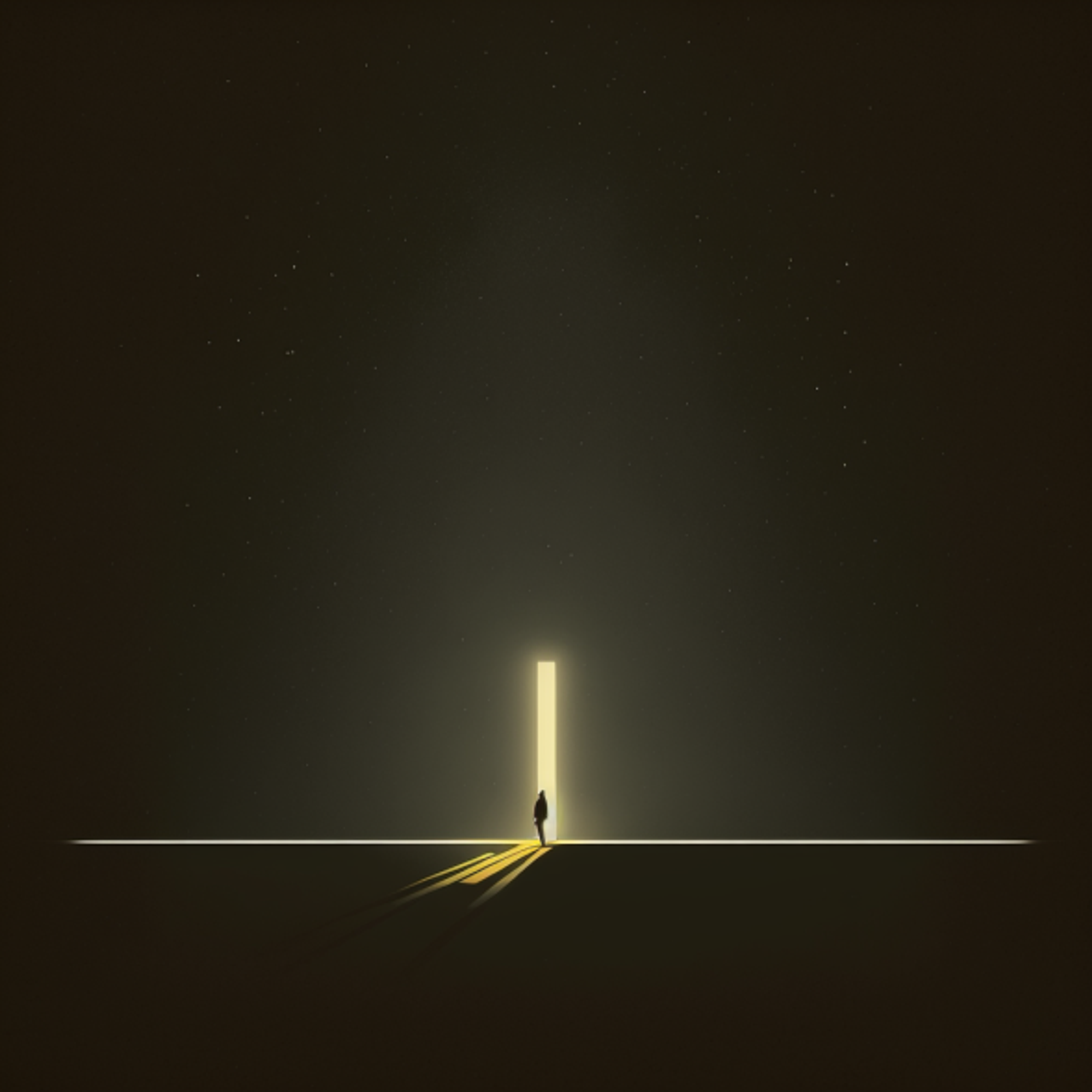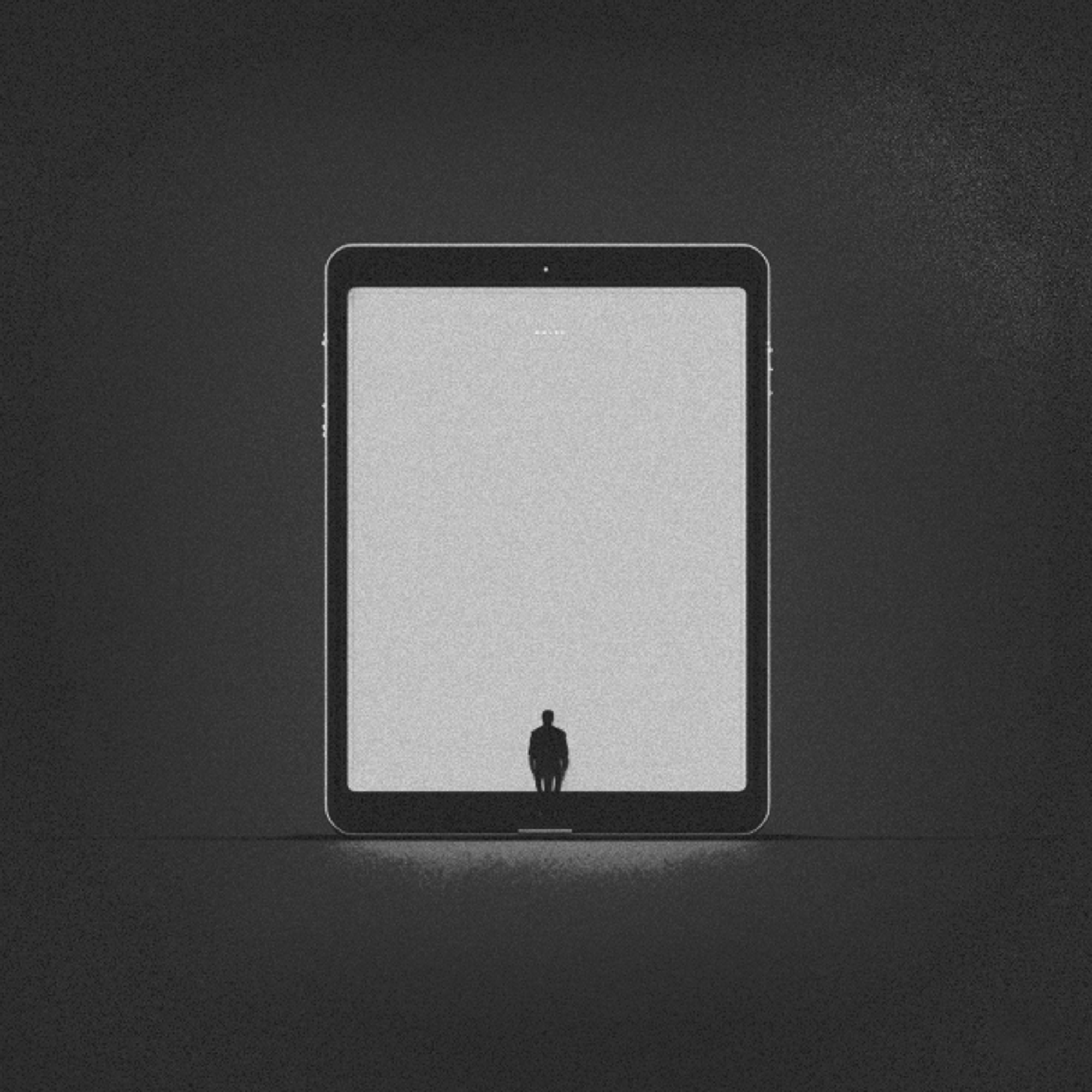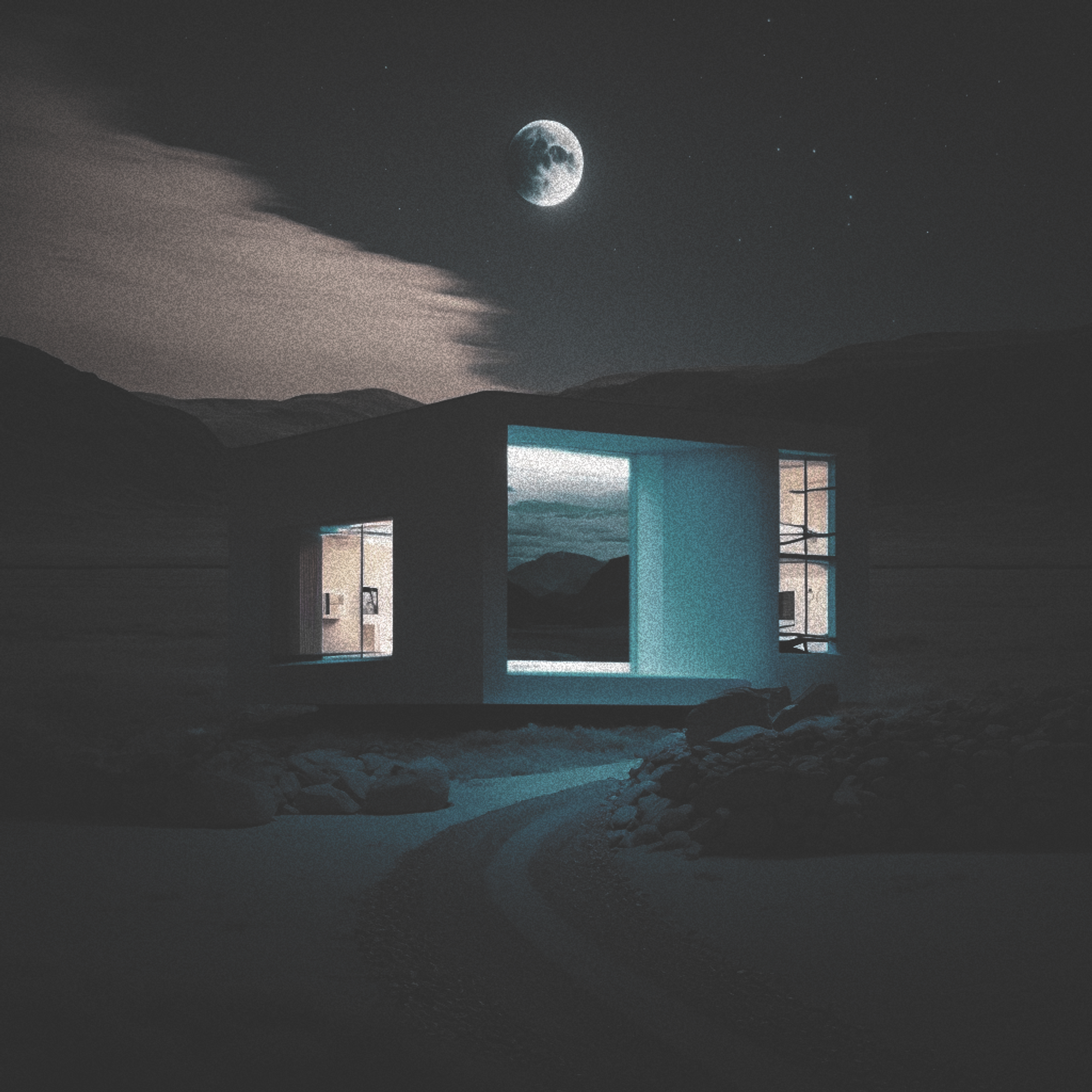
Recently, in the past month or so, I had started to grow sick of the constant pull away from the present moment.
Here and now was NEVER good enough for me.
This grew worse and worse over the course of the last half a year.
It became my own personal hell.
No matter where I went or what I did, it wasn’t right.
I gave into this feeling constantly—always moving from one place to the next, from one activity to another.
I would numb out this discomfort with dopamine stimulation far too often.
If you cringe at reading this, think again.
You’re almost certainly doing this as well.
Make it a point to notice all the times you go on your phone in a day, then contemplate how intentional that action really was.
What did you expect to get out of it? What did you truly get out of it?
This genuinely became my life. An eternal cycle, it seemed.
What an utterly ridiculous way to live life, isn’t it?
I started to notice more this disatisfaction with the present and grow frustrated with it.
I looked outward, at my goals, to see if perhaps they were to blame.
I investigated my biochemical profile, suspecting that a damaged neurological reward system might be to blame.
Then I thought more about meditation, spirituality.
I was growing crazy with myself. I didn’t want to live all of life like that.
There’s only ever the present moment, and if I didn’t actively change how I was experiencing the present, it’s as if I’m never truly living the life that’s right in front of me.
The truth is by noticing the present moment, everything negative can be dissolved instantly.
That’s a profound concept that’s been best articulated to me from the Power of Now.
It’s simple, but not easy in the slightest.
Thoughts and feelings are insidious. Tension arises and eclipses our entire consciousness without us even noticing.
Thoughts flood in that feel like us, so we lose ourselves in them.
We have to “work” to stay awake.
But when we do achieve presence, we achieve the purest, realest form of being.
In fact, the only form of being there ever actually is.
Normally we color the world around us—both our physical world and psychic world—with stories.
Stories are not real, though elements of them may have been real at one point in time.
Now, and always, the only thing that is real is being.
It’s weird, it’s a little uncomfortable to think about at first, but it’s true.
It might at first seem like life loses it’s depth in the face of this.
But in reality, it gains depth in orders of magnitude.
Once you start really opening your eyes to what is here and now, consciousness and the external world reveal their beautiful sophistication.
At the same time, our stories stop causing us pain.
This is a much better baseline state of consciousness than the usual: completely immersed in the ego and it’s problems (in other words, suffering caused by the stories it tells about the world).
Instead, try to view life as a beautiful, sophisticated, immersive and cinematic game playing out right before your eyes.
I used to say a cinematic film, but that eludes to a kind of inability to interact with it, which is not quite the case.
It really is a game, and the most complex one you could possibly conceive.
There are laws that govern it, universal energies and structures.
Everything is always moving, always changing, at different time scales.
Other points of consciousness manifest all around you, each with their own stored, subjective data of the world around them.
But ultimately, you can be whole in your being alone.
The external world is a bonus. You don’t need anything there outside of the most basic survival resources.
Once you start seeing life in this way, it can become incredibly immersive and fun.
You move from one present moment to the next, leveraging your mind as a creative tool to navigate through various challenges you take on.
You take in the profundity of the world around you. You see it for the strange and complex miracle it is and are grateful to take part in it.
You can recognize whats good, useful, and beautiful, and what’s bad, detrimental and tainted, and choose to take on challenges that contribute to the former.
This is basically being fully awake. Being whole in your presence, and engaging this world/ dimension as a game, leveraging the mind you’ve been given to navigate it’s crazy laws.
The pain-body, the ego, doesn’t want to die to this reality. It wants to control, it wants to create a dream of both pleasure and immense suffering.
The dark of the mind and unconscious are at war with the conscious point of light in you.
Their ammunition essentially is thoughts and feelings.
In a way, I think thoughts and feelings are the same energy on a spectrum.
Feelings are more primal and abstract.
Thoughts are refined, specific, and articulated—they’re feelings conceptualized and developed by the intellect.
They’re often the ingredients, the particles that make up feelings.
Both are external energies that flood the psyche.
Seeing, noticing, is the real answer to all this.
Doing so, for real, dissolves the illusion.
You have to step back from thoughts and feelings.
Investigate where they’re coming from.
Take inventory of the present: what’s going on around you?
Take inventory of your physical body: pain, stress, tension, hunger. These things can overshadow your state of presence and color your thoughts and feelings.
If you feel like you aren’t dissolving the illusion, you have to repeat the above process until you do.
Don’t accept not attaining presence.
See all your thoughts flow through you. Even thoughts of failure at the task. Let it all come and go.
STOP SUFFERING, NEEDLESSLY

If you’re someone who isn’t where they want to be, who feels like so much is missing from your life, then mindfulness or self-awareness is probably the single most important practice to cultivate.
Mindfulness has become quite a fashionable word, often associated with things like yoga or meditation.
To me this is a little bit unfortunate, because things like yoga and meditation are by and large still seen as niche practices or rituals.
The real, actual benefits of them, the reason why people do them, are still not as collectively conscious as they will be some day.
So someone not into yoga, Buddhism, or spirituality might be inclined to dismiss mindfulness as a practice before even really understanding it.
In reality, mindfulness can be extrapolated down to simply being aware of one’s own mind and the activity within it.
It means observing your own thoughts—an incredibly useful ability that can completely overhaul your whole life and how you see and experience it.
Thoughts are often the thing that everything “negative” we experience can be traced back to.
Almost everything bad that happens to us can be seen from an aerial perspective as experiences that we tell ourselves stories about.
These stories can cause us everything from pain to pleasure. They determine the a large portion of the ensuing emotions.
There is a certain animal, unconscious aspect of us that react to events instinctively.
This can be changed as well, but it can take years, lifetimes.
But fortunately, the intervals of time we allow those instinctive reactions to embody us can be reduced to almost nothing.
The more we practice awareness of ourselves, the faster we can mindfully notice the reaction and then pull ourselves out of it completely.
That process is more complicated than the description eludes to, but it is a skill that can become habitual.
Physical pain and suffering is the essentially the only type of suffering that are “outside” our volition.
But for most of us living in the developed world, without a chronic health condition, and not in a constant struggle for survival, physical pain is a smaller part of our lives than mental pain.
And regardless, mental pain can be mitigated to the extent that it will even lessen the impact of physical pain.
Both are, in the end, perceptions.
They influence each other as well.
If we tell ourselves a story of destruction about pain, it’s a horrible experience.
If we tell ourselves a story of preserverance and growth about physical pain, it’s merely exciting, even if they both involve the same signals of pain from the same nerves.
In a similar way, the physical pain our body experiences can subtly influence the thoughts in our minds.
It can make us think more negatively as a result of feeling weak and leaden down by life. There is a dose of hopelessness.
Be aware of these influences, then do everything you can to not get unconsciously drawn into the processes of them.
Develop strength and take care of your body, to mitigate physical pain and to stand strong in the world.
It will lead to better thoughts, boost your confidence, and open up the world for your soul.
Notice your own thoughts and how they are influencing you, try to find where they’re coming from.
Analyze them.
How are those thoughts affecting your behavior?
What grounds are there for having them in the first place?
Most importantly: is it useful to conitnue having them, in the face of the greatest vision of your life?
DIGITAL MEMORY
THE BEGINNING OF HISTORY IN 4K

In the distant future, when people look back at their ancestry, they’ll be able to follow in really lucid detail up to a certain almost dramatic cutoff in information - the several decades around the year 2000, where we live today.
With respect to their lineage, they’ll likely have videos, digital files from their family and the world, recordings, detailed accounts for their careers, and so much more.
Perhaps even one day, such things as exact GPS coordinates of individuals at any point in their life will be accessible.
Of course, the amount of information available will steadily decrease as one goes further back in time, but the contrast that will present itself at the turn of the second millennium will undoubtedly stand out.
The invention of the internet and the “digital” world in general made it possible to record life in vivid detail, with unlimited layers of information.
Prior to it, history starts to get lost, at first losing sophisticated visual representations of life (video is relegated to photography, then to artistic representation, then to symbols, etc) and in parallel losing data about life as record keeping becomes less and less comprehensive.
Eventually, the only trace of anything at all from the past world are dusty ruins and greatly distorted word-of-mouth accounts passed down through the ages.
In any case, we alive today will be right at the nascence of the digital world and will thus be some of the first in our families to “appear” to the world.
We’ll show up in colored and high resolution videos, photos, audio recordings.
Through the internet all kinds of data will exist on us. Through personal digital hardware, our own data will be passed on and preserved, backed up.
Of the billions of people alive in the distant future, most everyone will be able to trace their family record in detail back to our generation.
We are, in a sense, the founding fathers of untold generations to come.
As time goes on, and the families branch and multiply, we can’t even imagine the genetic tree that potentially follows us.
And imagine that all these people will be able to look deep into their history until they come to us right now (and to some degree our parents and grandparents).
It’s easy to dismiss this reality as pure imagination, probably because it’s a bit daunting to accept.
In truth, there’s really no limit to how many descendants could originate from us and our families. Carried to a logical end, this could mean our lives may be important to millions of people to come.
Think about the average person.
The average person isn’t famous in their lifetime and really only are important to those they directly interact within their lives.
Famous people enjoy a legacy effect where they can continue to inspire people, or be relevant sources of wisdom, for centuries to come.
The average person though, after they pass away they eventually lose relevance to everyone.
That is, everyone except their descendants.
With respect to one’s family, everyone gains a certain degree of importance just for being a link in the chain of a family line, regardless of what they accomplished in life.
Ancestors are important to people, and the only reason people don’t go too far back in their history to see the details these days is because they simply can’t.
For me, I have information only to about my great grandfather, after which it just becomes a list of names.
Basically this means that, no matter what we do with our lives, if we start a family then we can’t help but be important people to anyone that follows us—which again, has no limit.
And it’s very likely that all these descendants will be able to reliably trace their family back to us, no matter how far in the future we are talking (5000 years, why not?).
Therefore, our lives may seem insignificant at times, but in reality we occupy a position of such supreme importance that it can hardly be overstated.
We are the beginning of something that exceeds our capacity for imagination.
Our lives may be a reference for untold amounts of people far into the future, right at the cusp of the invention of the digital world, when the history of humanity came into the light for the first time.
Are we living an inspiring life for all these people?
When they look through our videos, when they read our digital journals, what kind of person will they find?
Will they find someone who did their best and kept their head up in the face of the adversities of life?
Who loved, and appreciated what’s beautiful in this world?
Will they find someone who lifted others up, who created meaning, who stayed strong, grounded, and ruthlessly good, no matter what life threw at them?
Hopefully we are someone who these potentially millions of people can look back on and think, what an interesting and beautiful spirit, and be proud to be of the same blood.
Rather than being discouraged by the above as a hopelessly large responsibility, try to see it as nothing but an opportunity.
Every time you choose inaction, you choose something trivial, remember this principle.
Your life matters, every minute matters. What are you going to do for humanity? What are you going to do for God, given the consciousness you’ve been gifted?
You tend to find yourself in moments when it seems like nothing matters, failing to see beyond this tiny slice of time you currently occupy.
Your life at large is the very dawn of humanity in lucid memory.
This life you live now will someday look utterly foreign and otherworldly, and for that reason, very interesting.
And quite frankly, it is indeed like that in reality.
Why not make the best of the peculiarities of being alive now?
ARCHITECTURE, LIBERATED
a vision of the future of designing & making buildings

Architecture is an extremely complex process that involves a huge amount of technical knowledge, skill, connections, and capital.
So it used to be for many other creative things.
Music and film production, before the advent of software, was incredibly technical and disjointed. It would take teams of hundreds of people, and hundreds of hours of time to accomplish a project (and all the minute details of it).
AI, code, and algorithms will make all the processes in architecture easier and more accessible. Humans will oversee it. The entire enterprise will become less disjointed.
Some day, all architecture project sites will be availble in “4K” definition as models from Google Earth or similar.
Site modeling and surveying will be gone as we know it
All the necessary information, including data related to utility and ecology, will be readily available for any site. Material acquisition will be streamlined, the same way resources we use for creative projects today are.
Think: music licensing platforms, stock footage platforms, github, etc.
The same way a platform like Bridge for Unreal lets you easily browse and acquire materials for modeling, a new platform will connect real world sources of materials with real built projects. This will extend to all physical assets for real world architecture: materials, components, fixings, mechanical equipment, etc.
Manufacturers will be able to make profiles on these platforms
Shipping and distribution will be streamlined and centralized like Amazon
It’s conceivable that clients and architects will be able to design their own projects someday on a user-friendly tool. They will be able to design it the same way we do in game software, and all the technical backend for realizing the project will be arranged and coordinated by software.
The budget will update in real time as you build. You’ll be able to swap out components and materials for different manufacturers. You’ll be able to connect with a construction company which will be transferred all the relevant data.
Architecture of the future will be democratized and accessible for so many creatively thinking people.
Licensure will no longer be required because all the parameters of code, safety, accessibility, etc, will be managed with the software.
The same way anyone can be a producer or videographer today who has access to software, so it will be with architects. They will no longer be a technical profession, but a creative one.
AI will learn to operate this software and replicate what humans create with it, which will make novel ideas prolific. At that point it will be about inputting data as a prompt and parameters for a building, and out the other end will come detailed designs.
This will likely take a few decades to complete, and there will be an extended time where “architects” will be necessary to navigate the space between a few disjointed tools
Once everything is synthesized into singular architecture & construction tools, however, AI will quickly take over it.
Now, clients (with capital) come to architects, who offer a service. From an architects standpoint, they need the clients to initiate projects.
In the future, architecture will be proactive. Anyone who needs a building can use the tool (and realize a built project if they have the capital).
The best “architects” will be proactive themselves - creating a realizing projects that generate capital, allowing them to make more projects. The same way video creators today make content that pays back.
Job titles will become more blurred and decreasingly useful. “video creators” today can be anything from editors to someone that merely has a seed idea and hires people to manifest it. The same will happen with architecture.
What it means to be an “architect” will be so many different things. Some will be people that dream up buildings and property development for different creative ideas they have, and who learn the ins and outs of the architecture tools in order to manifest these dreams. Some will be people that learn the tool for the sake of design, and who take on other people’s projects as a service and passion.
Capital will always be the gatekeeper for realizing architectural projects. Land is a finite resource and nearly all of it is owned, so it will always be expensive. Building materials may decrease in cost with time, but not significantly.
Basically, it will always take a lot of financial resources to create buildings.